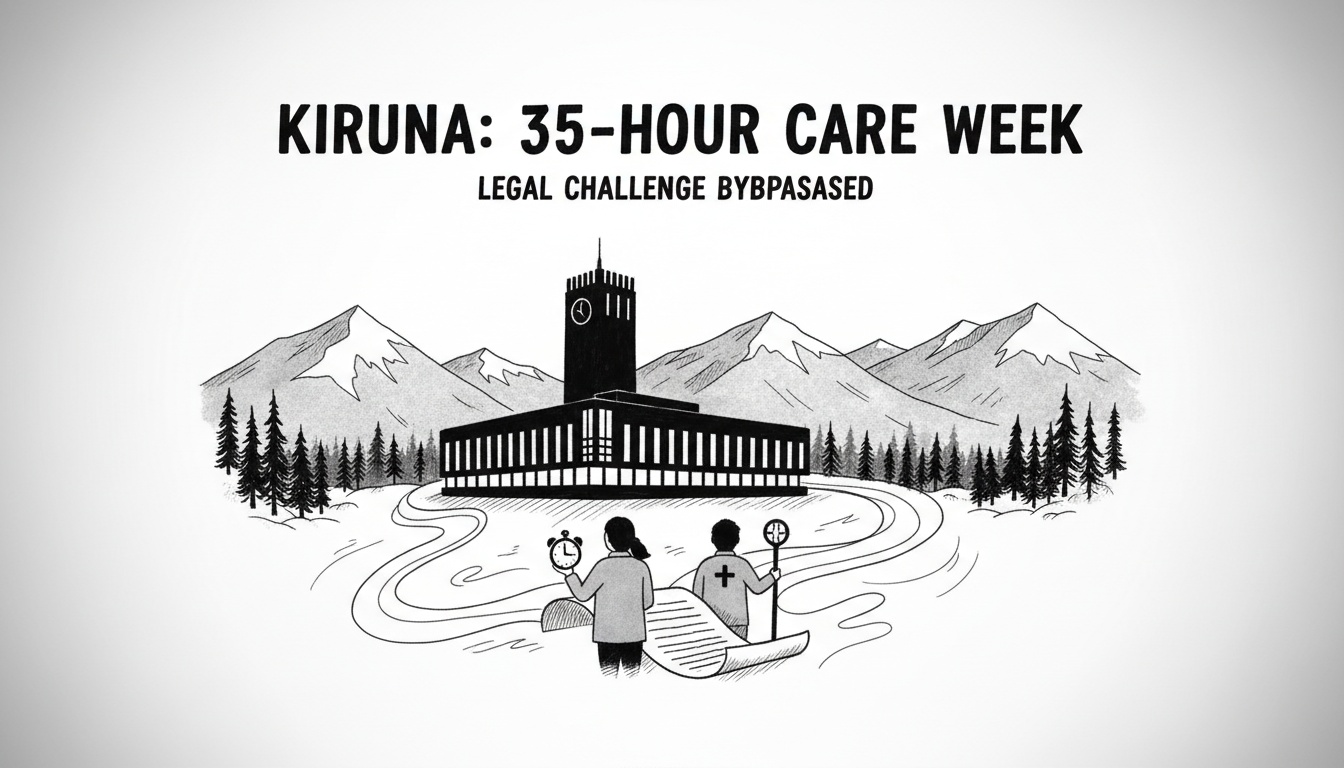Kiruna Municipality has implemented a 35-hour work week for care sector employees through an administrative maneuver that bypasses a recent court ruling. The Swedish Administrative Court had suspended the original decision because the matter lacked proper preparation in the municipal executive board before the full council voted. Local politicians now circumvent this legal obstacle by transferring the decision-making authority to the social welfare committee. This strategic move allows the policy to proceed even as the court recognized a private citizen's right to challenge the initial process.
The reduced work hours will affect approximately 300 care positions involving direct patient care. Municipal official Sanna Inga Poromaa stated the municipality will manage this transition without creating additional positions. She confirmed in a public announcement that existing work schedules will be restructured while maintaining the current operational budget. The implementation represents a significant workforce adjustment equivalent to 15-17 full-time positions.
Trade union Kommunal expressed support for the shortened work week despite acknowledging that work responsibilities remain unchanged. Union representative Lillemor Filipini emphasized the trial period aims to improve employee retention in the demanding care profession. The union's position reflects broader Swedish labor discussions about work-life balance in municipal sectors.
This development demonstrates how Swedish local governments navigate complex administrative procedures when implementing controversial policies. The Kiruna case illustrates the tension between municipal autonomy and legal oversight within Sweden's decentralized governance model. Similar work hour reductions have been debated in other Swedish municipalities facing recruitment challenges in care professions.
The approach taken by Kiruna officials shows how local governments can use committee structures to advance policies that face legal hurdles. This reflects a broader pattern in Swedish municipal politics where administrative flexibility allows continued policy implementation during appeals. The situation highlights the intricate relationship between local decision-making and national regulatory frameworks in Sweden's welfare system.
Care sector professionals in Northern Sweden have long advocated for improved working conditions amid recruitment difficulties. The 35-hour week represents one potential solution to make these positions more attractive while maintaining service quality. Municipal calculations suggest the change can be absorbed through efficient scheduling rather than increased staffing budgets.
International observers may find interest in how Swedish municipalities balance workforce policies with fiscal responsibility. The Kiruna model demonstrates a middle ground between employee demands and budgetary constraints that could influence similar discussions elsewhere. The outcome of this trial period will likely inform future labor negotiations across Sweden's public sector.

